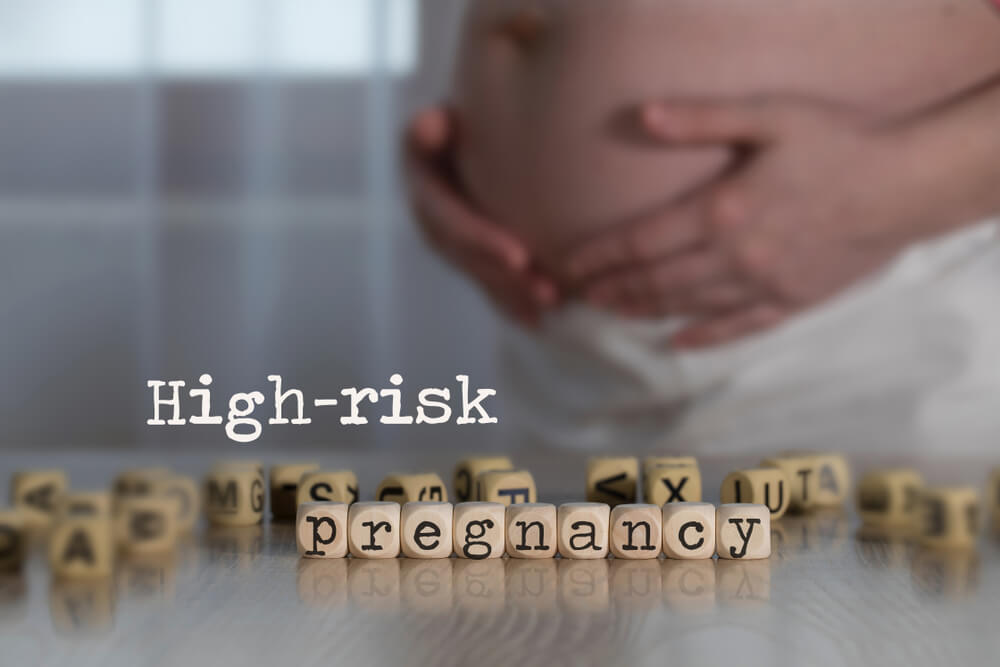The meaning of the phrase high-risk pregnancy is that the mother and the baby are at an increased risk of complications and health issues before, during, and after the pregnancy. Numerous women have had high-risk pregnancies but managed to deliver healthy babies. If you follow your doctor’s recommendations, your chances of a successful delivery are pretty good.
My OBGYN Specialists is one of the most successful and recognized clinics when it comes to handling patients who are at risk from complications while pregnant, so if you are looking for prenatal and natal care, you need to find experts and specialists who have plenty of experience and knowledge in handling different symptoms and issues which occur when a person is experiencing a high-risk pregnancy.
In today’s blog post, we wanted to share some risk factors which cause issues during pregnancy, as well as some steps and advice on how to act when this is your situation. Be aware that all pregnancies carry certain risks, but when your pregnancy is considered high-risk, then you need to take extra care of yourself and your future baby.
Some women face physical indications such as abdominal pain during pregnancy and mental health issues such as postpartum depression. Still, your doctor should make sure to offer you all possible options to ensure a happy ending for both you and the fetus.
If we are talking in numbers, around 50,000 women in the U.S. go through very severe complications when they are pregnant. Unfortunately, non-Caucasians, especially members of the Black community, experience three times more often pregnancy complications than white people.
Causes and Risk Factors for High-Risk Pregnancy

There are different risk factors and causes that lead to women facing high-risk pregnancies, and below you can find out what those include:
- Health conditions that existed before the pregnancy, such as high blood pressure, epilepsy, obesity, diabetes, issues with the thyroid gland, heart conditions, fibroids, kidney disease, low body weight, depression, PCOS, lupus, and alike.
- Lifestyle choices include smoking, alcohol, drug addiction, exposure to toxins, etc.
- Health conditions related directly to the pregnancy include slow fetal growth, rhesus sensitization, unusual position of the placenta, congenital disabilities, gestational diabetes, eclampsia, etc.
- The future mother being older than 35 or younger than 17 (younger people are at higher risk because they might not go to prenatal care, they may be anemic, they are more prone to having premature labor and birth, and they might be unaware of having a STIs)
- If the mother is carrying more than one baby
- Previous pregnancy history involved different conditions such as hypertension disorders, preeclampsia, premature birth, etc.
Symptoms and Complications of High-Risk Pregnancy
To recognize the symptoms and alert your chosen medical provider, here are some of the most common signs you might be at risk while pregnant:
- Consistent abdominal pain during pregnancy
- Abdominal cramping
- Pain in the chest
- Fatigue
- Fainting
- Dizziness
- Slow fetal movement
- Fever over 100 °F
- Nausea
- Heart palpitations
- Swelling in the face
- Continuous headaches
- Issues with breathing
- Vaginal discharge or bleeding
- Desire to inflict harm on yourself or the baby
- Burning sensation while urinating
When it comes to complications that might occur due to a complicated pregnancy, many have a wide variety of effects on the mother and the fetus. Some of them can be life-threatening, so it is essential to exercise fetal monitoring during pregnancy and have regular appointments with your chosen doctor.
The potential complications are:
- Preeclampsia (when the pregnancy causes high blood pressure)
- Eclampsia (when the person can get a seizure due to the pregnancy)
- Preterm birth
- C-section
- Uncontrolled bleeding during labor and delivery or after giving birth
- Baby can be overweight or underweight
- Issues with the development of the brain in the baby
- Congenital disabilities
- Stillbirth
- Need for intensive care for the baby and the mother
- Miscarriage
Diagnosis
Diagnosing a high-risk pregnancy includes a series of tests and check-ups, so it is best to start testing yourself early through the process of prenatal care. Make sure you share everything about your health and your family’s medical history with the doctor because you might need special fetal monitoring during pregnancy to avoid any additional complications.
Here are some tests your provider might ask you to do:
- Urine and blood tests can help you see any genetic predisposition for congenital disabilities in the child.
- Ultrasonography is used to create images of the baby and to check for congenital conditions.
- Biophysical profile is also often used to check the baby’s breathing, movements, and levels of the amniotic fluid.
- Prenatal cell-free DNA screening is used to spot any chances for the child to suffer from chromosome issues via DNA taken from the mother and the fetus.
- Invasive screenings for genetic conditions such as amniocentesis or CVS are advised so that doctors can identify potential genetic conditions or issues in the fetus’s brain or spinal cord.
- Cervical length ultrasound is most often recommended to measure the length of the mother’s cervix to ensure there is no preterm labor risk.
- Urinary tract infections and other infectious diseases are screened by doing a series of lab tests.
Prevention and Management of High-Risk Pregnancies
Unfortunately, there is no way of preventing this type of occurrence, but you can try to take steps that will help you in reducing risks, such as:
- Avoid using alcohol and drugs
- Get a prenatal check-up to identify any health conditions which might pose risks
- Maintain a healthy weight before and during the pregnancy
- Manage pre-existing issues with your health
- Stop smoking
- Check for any risks from taking long-term medications
- Avoid pregnancies after the age of 35 or before you are 18 years old
- Practice having safe sex and using protection if you are changing partners often
If none of the abovementioned tactics work, then you will have to face a high-risk pregnancy and learn how to manage your condition with direct guidance and support from your doctors. This includes some steps that might require changing your daily routines and reinventing your everyday life.
These can include more frequent visits to your doctor, consulting with a fetal medicine specialist, more frequent ultrasounds and check-ups, blood pressure monitoring at home, monitoring of medications you use, etc. Sometimes a C-section is recommended if the pregnancy is very high-risk and the natural delivery can be life-threatening for both the mother and the child.
Aftermath

Future mothers are most often scared of the consequences the high-risk pregnancy brings after the child is born. Unfortunately, many issues might arise from this condition, but it does not have to be a rule. Many women deliver their babies without any problems, and the baby develops in the best possible way.
This said, it is essential to mention some potential complications which might occur after the child is born just to make you aware of all possible outcomes:
- Complications in new, future pregnancies
- Postpartum depression
- Issues with high blood pressure
- Diabetes type 2
- Stroke
- Cardiovascular issues
- Behavioral issues in the child
- Breathing issues
- Obesity
- Vision issues, as well as hearing and dental problems
- Mental health conditions
- Neurological issues
Consult Our Experts!
We are here for you! The expert team at our clinic is ready to help you carry your pregnancy and deliver a healthy baby. Visit our clinic and schedule a meeting with our specialists.


